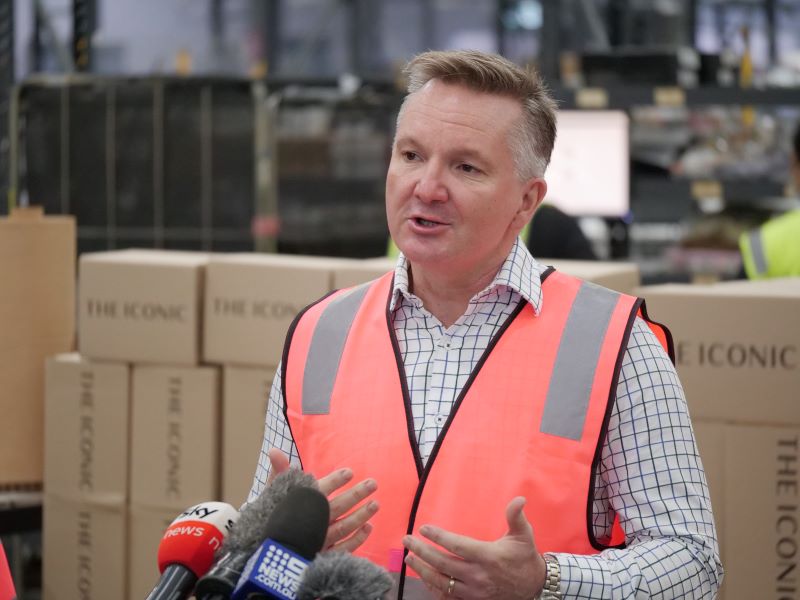Energy and Climate Change Minister Chris Bowen will introduce legislation for a new carbon credits scheme in November, while legislation to permit the use of international carbon credits to meet emissions reduction obligations remains “several years off”.
The Safeguard Mechanism (Crediting) Amendment Bill 2022 was released in draft form on Monday, with consultation to close on October 28. Mr Bowen anticipates the bill will pass in Autumn 2023 and that the new credits will be available from July 2023.
The legislation was recommended in 2020 by an independent panel led by Grant King, former Business Council of Australia president, which the previous government agreed with.

Such credits would allow facilities that produce annual green house gas emissions below the baseline level under the safeguard mechanism to trade their remaining emissions allowances, measured in tonnes of carbon dioxide equivalent. Purchase of the credits enables other facilities subject to the mechanism to reduce their net emissions.
There are around 215 facilities subject to the safeguard mechanism, which in 2020-21 accounted for 28 per cent of Australia’s total emissions. Facilities with annual emissions of 100,000 tonnes of carbon dioxide equivalent are subject to the safeguard mechanism.
Mr Bowen told the AFR Energy and Climate Summit that the introduction of these credits was an important reform for the decarbonisation of Australian industry.
“Tradeable Safeguard Mechanism Credits will enable the lowest-cost abatement to occur for facilities under the Safeguard Mechanism. It’s vital the reforms underway are efficient for Australian industry, and this draft legislation helps to do just that,” he said.
“Feedback on the consultation paper we released in August highlighted the importance of these credits to help facilities meet their obligations, and of appropriate compliance and implementation arrangements for the credits.”
The draft legislation does not pre-empt the final design of the safeguard mechanism credits, which was part of a package of reforms in the ‘Safeguard Mechanism reform: consultation paper’ released in August.
Further consultation on the proposed reforms and regulatory arrangements will take place later this year.
With regards to permitting the purchase of international carbon credits to meet safeguard mechanism responsibilities, another recommendation raised during the consultation, Mr Bowen said it would only be introduced when it is shown to provide real emissions reductions for Australia.
In his keynote speech, he told attendees of the summit that “even strong advocates of the use of international credits recognise that we are several years off being able to assert that these requirements can be met”. He later added that he has “no ideological objection” to international carbon credits.
A separate review into the Australian Carbon Credit Unit (ACCU) scheme is currently being led by Australia’s former chief scientist Ian Chubb. Currently, facilities that exceed their safeguard mechanism baseline can purchase ACCUs to lower their net emissions.
Former Emissions Reduction Fund Integrity Committee chair Professor Andrew Mackintosh published a series of papers in March 2022 with other researchers at the Australian National University that many ACCUs “do not represent real and additional abatement”.
“Unfortunately, Australia’s carbon market currently suffers from a distinct lack of environmental integrity,” Professor Mackintosh said at the time.
“People are getting ACCUs for not clearing forests that were never going to be cleared; they are getting credits for growing trees that are already there; they are getting credits for growing forests in places that will never sustain permanent forests; and they are getting credits for operating electricity generators at large landfills that would have operated anyway.”
Do you know more? Contact James Riley via Email.

